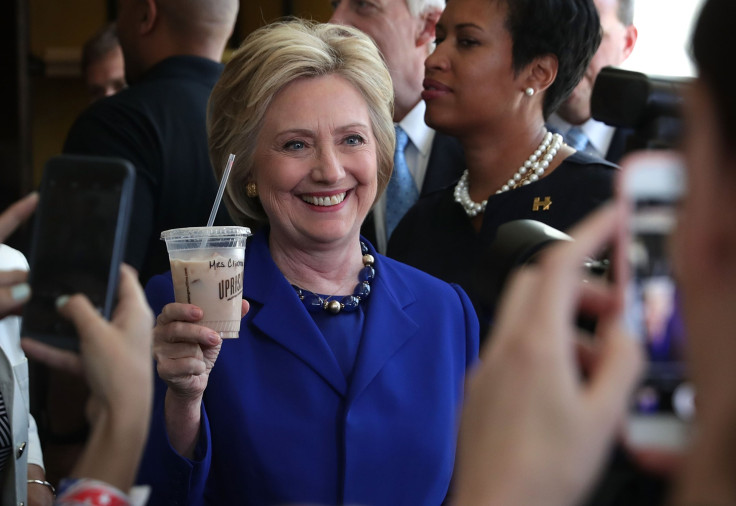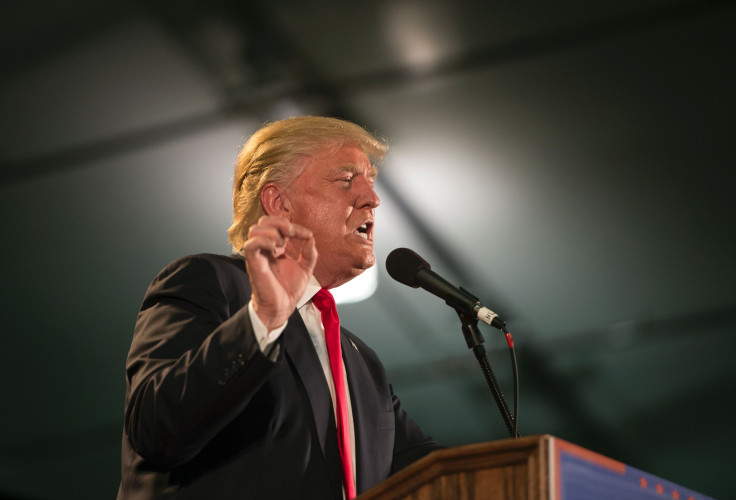Meg Whitman May Support Hillary Clinton Instead Of Donald Trump In 2016, Report Says

Many prominent Republicans have a dim view of Donald Trump. But Meg Whitman has gone so far as to compare him to Hitler -- and to say she is considering supporting Trump’s presumed rival, Democrat Hillary Clinton.
According to multiple accounts gathered by the Associated Press, the current president and CEO of Hewlett Packard Enterprise likened Trump to Mussolini and Hitler at the Experts and Enthusiasts Summit, a three-day closed-door conference held in Park City, Utah.
The AP also reported Whitman would support Clinton rather than Trump.
Whitman is not the first prominent political figure to make such a charged comparison. Former Mexican presidents Vicente Fox and Felipe Calderon compared Trump’s anti-immigrant rhetoric and proposals to Hitler within hours of each other in February. Both men made those comparisons after Trump declared he intended to build a wall that would keep Mexicans out of the United States.
Those were nowhere near the last Trump comments to be deemed insensitive. In fact, Trump is not above repeating things he knows will get a rise out of his liberal opponents. In February, Trump implied that Judge Gonzalo Curiel exhibited “tremendous hostility” toward Trump and Trump University because Curiel, who is a native of Indiana, is Hispanic. Those comments failed to make much impact, so Trump repeated them at a large rally last month. The comments, and their fallout, have dominated the news cycle for much of the past two weeks.
Separately, on Friday, Trump offered an apology of sorts for referring to U.S. Sen. Elizabeth Warren of Massachusetts as "Pocahontas," an allusion to Warren’s disputed Native-American heritage. “I’m doing such a disservice,” Trump said, according to the Washington Post, “to Pocahontas.”
While many Republican lawmakers and pundits initially refused to engage with these comments and their callbacks, they have since begun to, and it has put many of them in strange positions. U.S. House Speaker Paul Ryan, R-Wis., called Trump’s comments about Curiel the “textbook definition” of racism, yet reiterated his support for Trump’s candidacy during an interview this past week.

As the number of days before the Republican Convention, July 18-21 in Cleveland, continue to dwindle, the number of efforts to short-circuit Trump’s nomination keeps growing. These range from out-and-out denunciation to private maneuvering, from name-calling to loophole hunting.
A separate report from CNN notes numerous Republican Party apparatchiks are exploring ways in which the delegates pledged to Trump might be pried away for another candidate. Many of these efforts hinge on changing convention rules to allow delegates to choose whichever candidate they feel like supporting, even if that choice differs from the candidate to whom their support initially was pledged.
While some party operatives are skeptical that moves like that would be made — “I would put money on no rules changes that would affect the outcome of the nominating process,” Jim Bopp, an Indiana delegate, said — there are others who argue that delegates can already change their minds.
Late Thursday, lawyer and National Review staff writer David French laid out a case that Republican delegates are in no way bound to Trump and are free to change their allegiance should they feel so inclined.
“If the RNC follows the dominant historical precedent, delegates will be able to vote their consciences,” French wrote.
© Copyright IBTimes 2024. All rights reserved.











